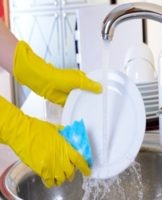Instructions on how to clean a water fountain yourself
Sometimes the water in the cooler becomes cloudy and begins to smell unpleasant. This happens if you do not wash the container in which the water is stored for a long time. Therefore, in order for the liquid to always be clean and fresh, you should familiarize yourself with how to clean the water cooler yourself.
Content
- 1 Why do you need to clean
- 2 When to clean
- 3 Timing of regular cleaning
- 4 What you need to clean your house
- 5 Home cleaning instructions
- 6 Final dismantling
- 7 Cleaning and disinfection
- 8 Descaling
- 9 Rinsing
- 10 Reassembly
- 11 Why does it make noise after cleaning
- 12 Connecting a chiller
- 13 Sanitary treatment of the do-it-yourself case
- 14 Precautionary measures
- 15 Prophylaxis
- 16 Conclusion
Why do you need to clean
Before you start cleaning, you should understand the reasons for cleaning coolers.
Plaque
The main reason for cleaning the container is to avoid the appearance of plaque, which negatively affects the quality of water. It appears if you do not rinse or rinse the water cooler for a long time. To avoid plaque, it is necessary to rinse the device once a week.
Ladder
Many models of water coolers are equipped with a heating element, which is responsible for heating the liquid. Over time, scale appears in it, which is formed due to exposure to high temperatures. Due to scale, the taste of water deteriorates.
bacteria out
If you do not wash the cooler for a long time, bacterial biofilm will appear on its contact surfaces and inside. It is very dangerous because it changes the composition of water and alters its taste. Regular cleaning will help prevent bacteria buildup.
Algae spores in water
Sometimes a slight greenish coating may appear on the walls of the containers. It indicates the formation of algae spores in the water. This is a seasonal phenomenon, and therefore most often they appear from the beginning of May to the end of September, when solar activity increases.
When to clean
There are several situations in which it is necessary to clean the cooler.
When changing water producer
Some people regularly change water manufacturers without cleaning the device.
Experts advise rinsing the cooler after each fluid change.
This will help remove old water residue and prevent plaque and bacteria.
After a long period of inactivity
Sometimes people stop using machines for pouring water and remain idle for a long time. With prolonged downtime, dangerous bacteria form in it, which must be eliminated.Therefore, before using the container again, it must be rinsed.
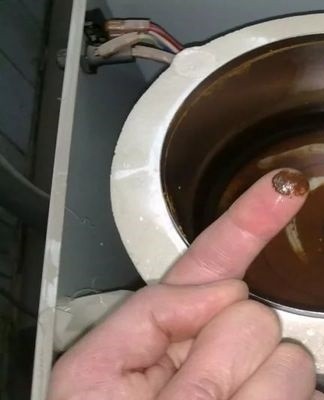
After completion of repair work
There are times when there is a device for supplying liquid for drinking to the room in which repair work is being carried out. After completing the repair, it must be washed in order to clean it from dust and other debris.
Timing of regular cleaning
Companies that manufacture such equipment recommend cleaning it regularly. However, they advise rinsing at least once every six months. However, it is better to do it more often - once every 2-3 months.
What you need to clean your house
There are several products available to help you flush your cooler at home.
Dishwashing liquid
Dishwashing detergents will help remove bacteria, plaque and limescale. In this case, it is necessary to use funds in the form of a gel, which are diluted with water before use.
Large volume water tank
If the contamination is too severe, you will need a large container that can be filled with water. The dimensions of the container should be such that the cooler fits in it.
Hard bristle brush
Some people use regular rags to remove tartar, but sometimes they don't help. Therefore, it is better to use hard-bristle brushes instead.
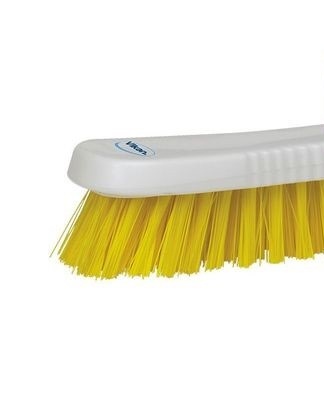
brush for water
It is not easy to clean the old plaque with scale. Sometimes even bristle brushes can't cope with it. In this case, you will have to use water brushes. They must be used with care so as not to damage the coating.
Sponge
To wipe off the newly formed plaque, use an ordinary sponge. It is used to wipe the exterior and interior surfaces of the cooler, on which there may be dirt.
latex gloves
When using detergents, care should be taken to protect the skin of the hands. To do this, they wear durable rubberized gloves that do not let moisture through. They will protect the surface of the skin from the soapy liquid.
Paper napkins
The washed cooler should be dried before use. Some people use paper towels for this, which absorb moisture well. It is enough to wipe the surface with them 2-3 times.
Cleaning agent
Cleaning agents can be used to clean the water supply. However, experts do not recommend using abrasive compounds and liquids containing solvents.
A rug that absorbs moisture
Washing the device can be done on a special mat that will absorb water. Its length and width should be at least 80-90 centimeters.
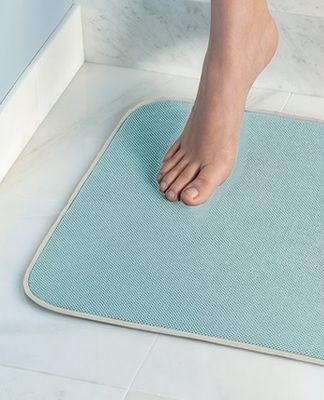
Home cleaning instructions
To properly clean the cooler, you must read the instructions in advance.
Cut
Before you start cleaning, you must disconnect the device from the mains. It's pretty simple to do, just unplug it from the outlet. The device connected to the outlet is contraindicated for washing.
Cylinder disassembly
After disconnecting the device from electricity, it is necessary to disassemble the bottle located on top. During dismantling, the following actions are performed:
- unscrew the rear ring fixing the container;
- Carefully remove the bottle to expose the hole it was installed in.
Evacuation
All the taps are open to drain the remaining liquid. Water is poured into empty containers. To speed up the fusion, the structure can be tilted to one side.
Removing removable parts
Having finished draining the remaining water, they take care of dismantling the removable parts of the structure. First, the drop receiver located at the bottom is unscrewed. Then the taps are disassembled, which also need to be cleaned.
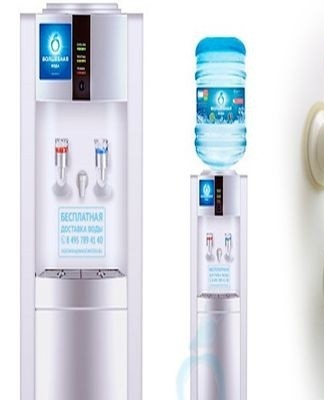
Final dismantling
Experts advise to completely disassemble the cooler before washing it. Therefore, if it is equipped with additional components, you need to get rid of them first. This will greatly simplify the process of cleaning the device.
Cleaning and disinfection
Before washing the device, you need to prepare a disinfectant solution.For this, 100 grams of citric acid are mixed with five liters of water.
All surfaces inside and removed parts are treated with the prepared solution.
Descaling
There are products that help remove limescale.
In mild cases
If there is a little tartar, acetic or citric acid will help. It is dissolved with a little water, after which it is poured into a tank for 25 minutes. Then it is poured and the container is rinsed.
With heavy pollution
When there is a lot of scale, use "Antinakipin" and other similar means. They contain components that help to quickly remove any contamination.
Rinsing
After application of the detergent compositions, these must be rinsed off. Rinsing is carried out with cold or slightly warmed liquid. The device should be rinsed at least twice.
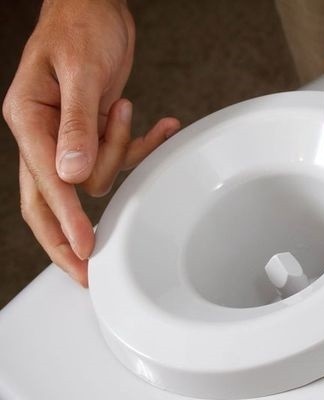
Reassembly
After rinsing and rinsing the device, it is necessary to reassemble it. The bottle and other components of the structure are put back in place only after complete drying.
Why does it make noise after cleaning
Sometimes, after cleaning, the cooler starts to make noise. There are six reasons for this problem.
Stay uneven
Most often, noise appears due to the fact that the device is installed on an uneven surface. During operation, it begins to wobble, which leads to the appearance of extraneous noise.
Must not touch walls or other objects
Often the noise is caused by the device being installed too close to the wall. By touching such a surface, parasitic vibrations appear.
Fasteners are loose
If the parts of the device are not fixed properly, they will start to emit extraneous sounds during operation. Therefore, if the device starts to make noise, you need to check all the fasteners.
fan problem
Some chiller models are equipped with fans. If they are not maintained or lubricated, they start to make noise when not twisted.

freon leak
A loud noise during operation may indicate a freon leak. If such a problem appears, you will need to contact the service center for assistance.
Connecting a chiller
Sometimes the device makes noise due to a poor quality connection between the water supply and the purifier.
Sanitary treatment of the do-it-yourself case
Surface disinfection is easy. You need to take a regular sponge or paper towels, soak them in a disinfectant solution and wipe the case clean. The procedure is carried out 1-2 times.
Precautionary measures
Highlight the following precautions to consider before cleaning:
- before work, the device is disconnected from the socket;
- do not use a steam cleaner for cleaning;
- it is contraindicated to wipe the cooler with solvents.
Prophylaxis
The main method to prevent the appearance of dirt in the cooler is regular cleaning. If you periodically wash and rinse the device, it will not accumulate scale and other dirt.
Conclusion
Some people install special water coolers in their apartments and offices, which need to be cleaned regularly. Before cleaning, you need to understand the features of the removal of contaminants in such devices.


